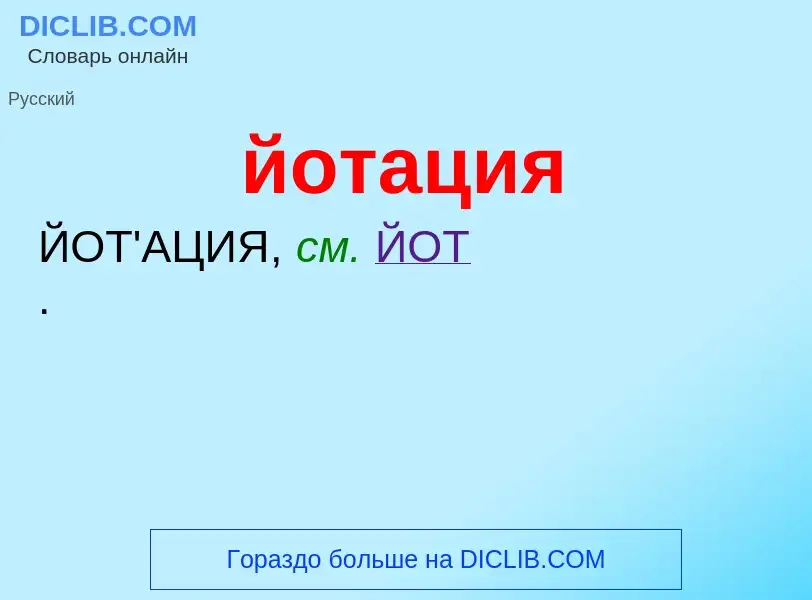Enter a word or phrase in any language 👆
Language:
Translation and analysis of words by ChatGPT artificial intelligence
On this page you can get a detailed analysis of a word or phrase, produced by the best artificial intelligence technology to date:
- how the word is used
- frequency of use
- it is used more often in oral or written speech
- word translation options
- usage examples (several phrases with translation)
- etymology
What (who) is йотация - definition
ОСОБЕННОСТЬ РЕЧИ, ВЫРАЖАЮЩАЯСЯ В ЗАМЕНЕ ЗВУКА "Й" ИЛИ ЕГО ВЫПАДЕНИИ
йотация
йотация
ж.
Появление звука [j] перед гласным звуком в начале слова или между гласными - в середине (в лингвистике).
Появление звука [j] перед гласным звуком в начале слова или между гласными - в середине (в лингвистике).
Wikipedia
Йотацизм
Йотацизм (йоканье, или йотация):
- Дефект (обычно у детей) или особенность речи, выражающаяся в замене звука «й» или его выпадении . Нарушение произношения «йотированных» гласных звуков, таких, как «йя», «йо», «йе» и др. — все они произносятся неправильно или заменяются какими-то другими. Например, слово «ёжик» вместо «йожик» произносится как «ожик», «уожик» и др., но в белорусском языке литературной нормой будет «вожик», то есть йотацизм в данном случае является нормой. Также йотацизм был нормой в смоленских и других западно-русских диалектах, а также другие различия(цоканье, чоканье, шоканье, жоканье, йоканье или йотацизм).
- Лингвистическая системная разница (не является дефектом) в произношении и написании (или озвучивании при одном написании) одних слов в разных языках и диалектах: Иосиф — рус., Йосип укр. и юж-рус., Джозеф- англ., Жозеф — фр., и Хосе — исп. и есть пример лингвистического йотацизма.
- Дефект или особенности написания из-за разных систем письма или транслитерации, а также смешение или неразделение йотации и смягчения, которое затрудняет прочтение и понимание написанного.
Иногда йотация (или смягчение) гласных обозначается апострофом, или диакритикой.

